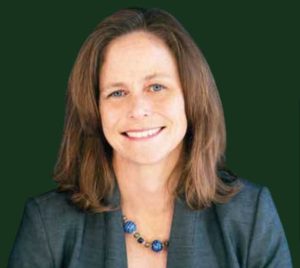The African Development Bank (AfDB) has reiterated its commitment to “closing the financing gap” for women even as it cautions on the impact of widening gender inequality in food systems in Africa.
The Bank’s Vice President for Agriculture, Human and Social Development, Dr. Beth Dunford, who made this promise while speaking in Rome, Italy during the pre-summit to the 2021United Nations Food Systems Summit, stressed that closing the gender gap in economic opportunities on the continent was critical for its future sustainable growth and food security
According to her, “closing gaps in economic opportunities is not only essential for women’s empowerment but for African economies, particularly for GDP growth, poverty reduction, and structural transformation for sustainable development.”
At the summit where representatives of more than 100 countries participated to discuss the latest evidence-based and scientific approaches to food systems, Dunford participated in the panel session, along with International Fund for Agricultural Development Goodwill Ambassador, Sabrina Dhowre Elba, and Director of Gender, World Food Programme, Dr. Kawinzi Muiu, to discuss on Gender Equality and Women’s Empowerment in Food Systems.
The AfDB’s Vice President reaffirmed the bank’s commitment to women’s empowerment in every sector, through its policies, such as the new Gender Strategy 2021-2025, and the Feed Africa Strategy, which prioritizes gender equality and sustainable outcomes to support all investment and sector dialogue actions. The Bank will provide a road map for gender interventions in the next four years, focusing on the agriculture sector, where women have the highest entrepreneurial potential, the vice president said.
She explained that providing access to finance for women-owned small and medium enterprises in Africa remained a key component of the bank’s strategy to establish a conducive business environment for women entrepreneurs to thrive.
Dunford further assured that the bank would support the UN Food Systems Summit, which will be held in New York in September, to ensure gender equality in food systems.
The development finance institution, through its Affirmative Finance Action for Women in Africa (AFAWA) initiative, has committed up to $5 billion to finance women’s businesses on the continent by 2026. This is already proving successful. For example, in Ghana a $20 million AFAWA Financing Climate-Resilient Agricultural Practices project is expected to benefit 400 women-led micro, small and medium enterprises through a line of credit from Ecobank Ghana. This support comes with technical assistance, and training in climate-resilient agricultural practices.
By the end of 2021, the Bank is expected to have provided close to $500 million of which $150 million will benefit women in the agriculture sector. , and to work with public and private sector partners to develop alternative financial models to increase the ability of women farmers to access the financing and skills they need to grow sustainably.
Available statistics indicate that in sub-Saharan Africa, the financing gap for African women in agricultural value chains is estimated at $15.6 billion. Women play a pivotal role in agriculture and agribusiness, and require more robust and responsive regulatory and policy frameworks for countries to benefit from their contributions.






